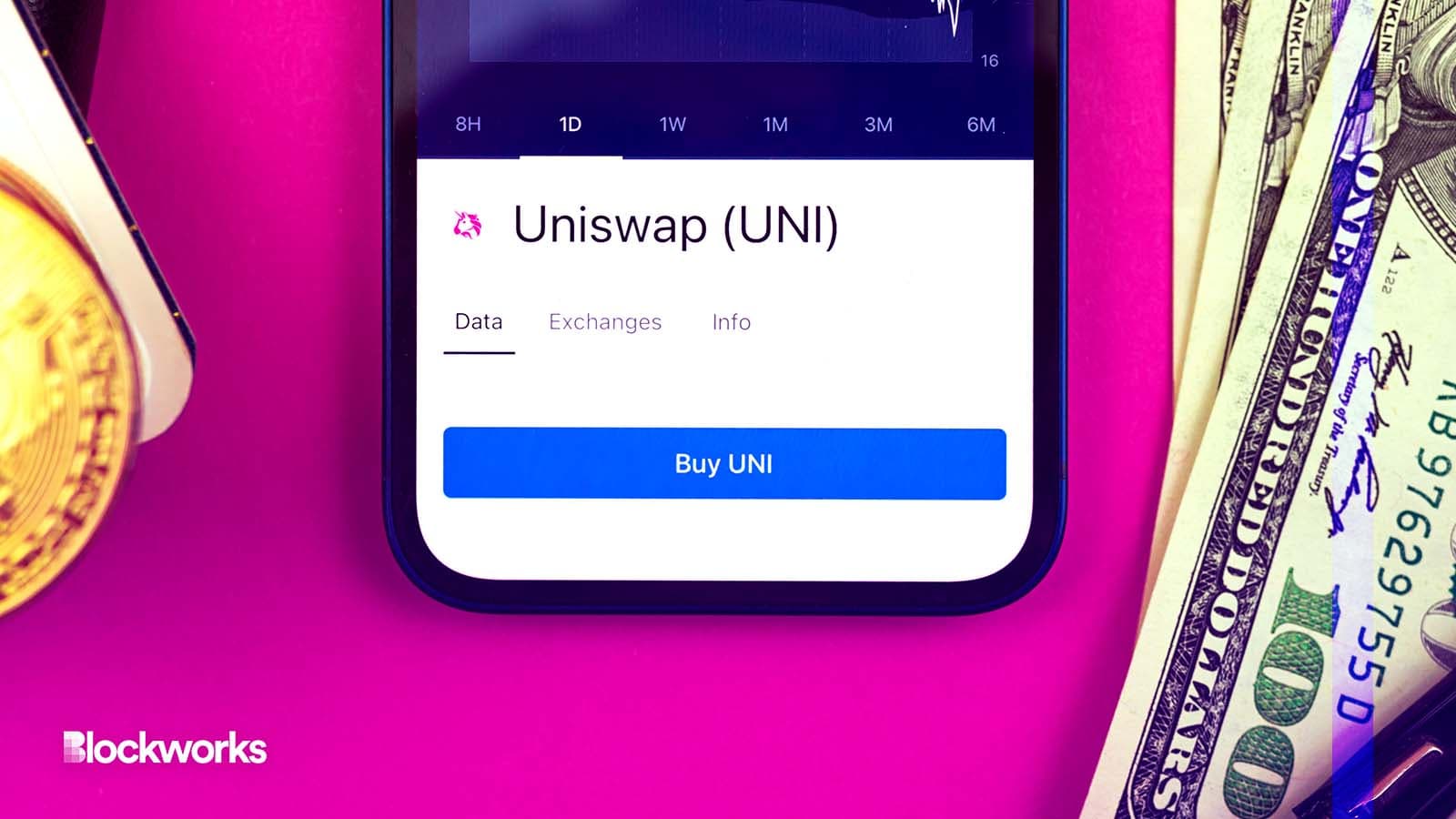Uniswap Community Mulls Fee Switch Proposal
This latest proposal wants to charge liquidity providers one fifth of pool fees across Uniswap v3 pools

FellowNeko/Shutterstock modified by Blockworks
The community that governs Uniswap’s decentralized exchange is once again discussing the possibility of implementing a fee switch.
GFXLabs’ latest proposal is looking to charge liquidity providers a fee equivalent to ⅕ of the pool fees across all Uniswap v3 pools and redistribute the earnings to the UNI community.
Uniswap v3 Polygon will undergo an initial test of the proposal. Depending on its success, the community will be presented with a subsequent proposal to determine whether or not the fee switch should be activated on Ethereum.
Separately, Uniswap community governance must also create a follow-up proposal to determine where to allocate the revenue.
An initial fee switch proposal was introduced in July last year by community members Leighton Cusack, founder of DeFi protocol PoolTogether and Guillaume Lambert, the founder of Panoptic.
The proposal suggested that Uniswap should test the parameters of its fees in select liquidity pools: 0.05% of DAI-ETH, 0.3% of ETH-USDT and 1% of USDC-ETH.
Despite passing a temperature and consensus check on Snapshot, the protocol did not record the proposal on chain. This was due to concerns raised by a handful of community members regarding the lack of clarity surrounding US tax laws and the potential implications of the revenue generated from the fee switch on the DAO.
“Although legislation has been introduced to address the issue, it has not passed Congress or been signed into law,” Devin Walsh, the executive director of Uniswap Foundation said in an earlier proposal discussion. “Following a holistic analysis, we do not feel comfortable recommending the creation of a traditional legal entity structure, if the proposal were to be approved right now.”
GFXLabs’ latest proposal noted that concerns around taxes should be redirected to the protocol’s treasury.
“For the purposes of this proposal, treasury management is out of scope,” it wrote.
So far, Uniswap’s community governance has given the new fee switch proposal mixed reviews.
A community member who goes by markus0 noted that although the fee switch is technically feasible, it poses clear disadvantages. Beyond legal risks and increased competition from other DeFi protocols, DAOs also do not operate as effectively as a business, he notes.
“If we want to move towards turning on the fee switch, I think a much better idea would be selling a portion of the UNI in the treasury. If it turns out the DAO can effectively allocate those funds and handle the legal and tax ramifications of the sale – then let’s start thinking about turning on the switch,” markus0 wrote.
Cusack, the author of the initial fee switch proposal, noted that the latest proposal shared a similar weakness to the earlier one.
“It does not address what to do with any fees collected,” he wrote. “I’ve come to the strong belief that any fees collected by the protocol should be autonomously distributed in a programmatic way. There is a big design space in what that could look like but the main point is that they should not simply collect to a treasury where they are then arbitrarily distributed based on later token votes.”
Uniswap community governance will have another week before the proposal will be put on Snapshot for a temperature check.
Get the news in your inbox. Explore Blockworks newsletters:
- The Breakdown: Decoding crypto and the markets. Daily.
- 0xResearch: Alpha in your inbox. Think like an analyst.






